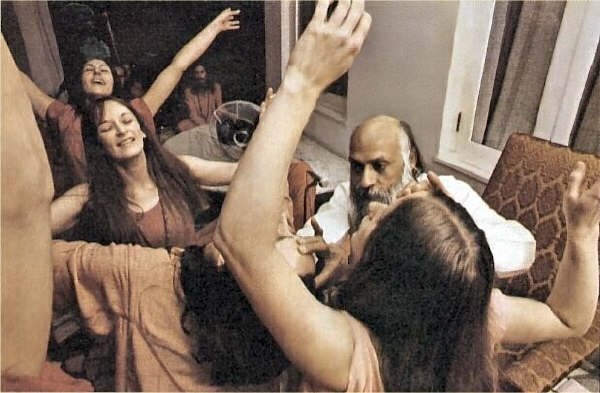"That which cannot be said should not be said."
Ludwig Wittgenstein
All mystics have not been masters. They had realized, they had come to the ultimate peak of experience, but they remained isolated and cut off from the larger humanity. They could not contribute anything. They knew it — but suddenly they found they were dumb. They have tasted it, but by tasting it they have lost their tongue, they cannot speak about it.
One of the greatest philosophers of the contemporary West, Ludwig Wittgenstein, has made one of the most pregnant statements. He is the only man in the contemporary world who writes only maxims, who does not even make a paragraph — just lines, each line separate and individual.
One of his lines is: "That which cannot be said should not be said." Now, this man is aware that there is something which cannot be said. He is not denying it, he is not saying that there is nothing mysterious; it is there. But he is making a statement that that which cannot be said, should not be said. Why? Because whatever you say is going to be wrong. That is the situation of a person who has somehow come in contact with the back of the mind.
Now, this man was a trained philosopher, and trained under the greatest minds of this age. He had fortunately, Bertrand Russell as one of his teachers, G.E. Moore as one of his teachers — and both these great philosophers, G.E. Moore and Bertrand Russell, have said about him, "Although he was a student, we felt like pygmies before him." And these were the great philosophers, Nobel Prize winners.
What was it about Ludwig Wittgenstein that made them feel like pygmies? — he was just a student and it was at the suggestion of Bertrand Russell that Wittgenstein published his notes that he was taking in Russell's class. They were not notes of what Russell was saying, they were notes of what Wittgenstein's reactions were to Bertrand Russell's statements.
When Russell looked at Wittgenstein's copy book he said, "My God, I thought you were writing about my speeches, my lectures. But you have written original things, you have done a great job." He was reacting…. Bertrand Russell had a developed front part of his mind, and that man Ludwig Wittgenstein was in contact with the back of his mind.
Scientists say we don't know what the purpose of the back of the mind is. They have not been able to figure it out, why it is there, because it is half of the mind but it seems to have no purpose. It helps in no way, it has no function. Scientists perhaps will never be able to understand this abysmal depth, darkness, and the mysterious part of their own minds.
Whatever Wittgenstein had noted down as reactions in his notebooks, Bertrand Russell persuaded him to publish. Wittgenstein said, "but these are simply notes! You were talking, and when I heard something and I felt it was not the right thing, I simply wrote down notes, just for my own purposes."
Bertrand Russell insisted, "the notes should be published as they are; and don't edit them, because they bring something which is not known to the thinker, the philosopher; they bring something which is known only to the mystic. It is just a coincidence that a mystic has come to study philosophy."
But Wittgenstein could not find the connection between the mysterious side of his mind and the left side of his mind. There was no bridge. He tried hard — he was a trained philosopher, logician, so naturally he worked very hard. He wrote his books again and again, revised them, tried hard, and finally decided that that which cannot be said, should not be said, because whatever you say is going to be wrong. It will not represent the actual experience.
He could not find the real passage from the back of the mind. It is not the left side of the mind. The left side of the mind is in the service of the front of the mind, it is part of the world of activities. The right side of the mind is in the service of the inactive, of the silent, of the unmoving. We are carrying this cross continuously. Aristotle's logic fits with the left side of the mind and the front of the mind, but it leaves great spaces outside. The front of the mind and the left side of the mind are very small. The back of the mind is just endless; it is an opening into the mysteries of life.
Once in a while it has happened that somebody has found the link and has been able to say something significant. That's why there are so many mystics in the world but very few masters. A master is a mystic who has found that the right side of the mind is the way to convey the illogical, the mysterious, the unexplained and the unexplainable.
OSHO


